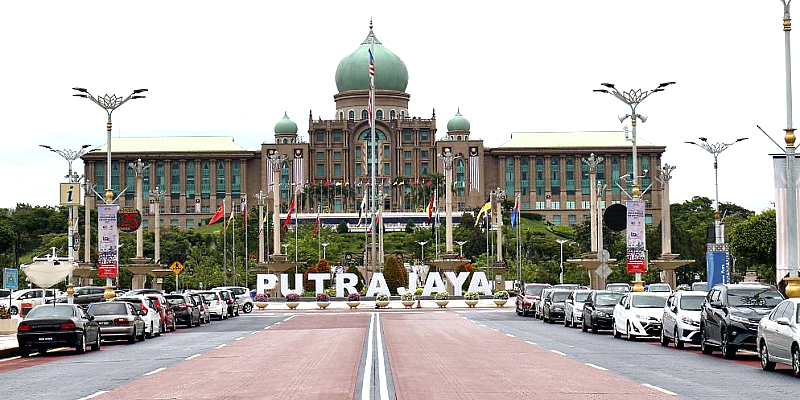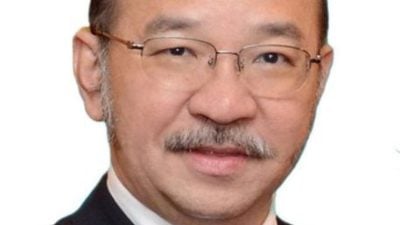Appointing two DPMs with real power is logical, as East Malaysians can only have a say in their rights and development if they have their representatives at the core of power!
October 24 seemed to be an auspicious day for East Malaysia, with two major political camps most likely to rule again after GE15 both holding out the olive branch to court the people there.
BN chairman Ahmad Zahid Hamidi and caretaker PM Ismail Sabri Yaakob promised to appoint a winning leader each from West Malaysia, Sabah and Sarawak to be deputy prime ministers, if the coalition wins the next election.
PH is not to be outdone too, with its chairman Anwar Ibrahim pledging to appoint a DPM each from East and West Malaysia if PH gets to rule again. But the thing is, who between Sabah and Sarawak will get the prize if PH wins? Another fight is well expected!
It’s been almost 60 years since Malaya, Sabah and Sarawak joined to form the federation in 1963, but why does it take so long to make anyone remember a DPM post has to be reserved for the two nations that form East Malaysia? Is it a kind of vote-buying deal or a justice delayed?
It’s not wrong to label the offer a vote-buying deal in securing federal administration in exchange for one or two additional DPM posts, some kind of swapping of interests.
And it is also right to call the offer a delayed justice, as under MA63, the nations of Sabah, Sarawak and Malaya are equal partners in the federation. But then why isn’t there a DPM from East Malaysia for near to six decades?

Currently 56 of the 222 parliamentary seats are from East Malaysia, including 25 from Sabah and 31 from Sarawak. If we were to adopt the proposal of the Special Council on the Malaysia Agreement (MKMA63), Sabah and Sarawak should have 78 of the 222 parliamentary seats in the coming election, and this will have an even stronger impact on the country’s political direction.
If the 35% of seats can have a united stand, they can even claim a PM office, let alone the DPM!
Very stiff competition is inevitable for the 166 parliamentary seats on the peninsula, and this trend is expected to persist for many years to come. None among BN, PH and PN can expect to take Putrajaya without taking heed of the voters in East Malaysia, making the two nations across South China Sea veritable “king makers” in future elections. Hence, the DPM offers!
First of all, if Sabah and Sarawak were to get one DPM post each after this election, it is hoped that the country’s racial make-up ought to be given due consideration. We don’t want to see all three DPMs being Malays!
For Sabah, half of its four million people are from the indigenous groups while Malays only make up 13%, more or less the same as the Chinese population.
As for Sarawak, Ibans make up almost a third of its population of three million, with all indigenous groups making up 50.5%, and Chinese and Malays around 24% each. So the indigenous peoples should be given priority in the appointment of an East Malaysian DPM.
We are not here to promote racism but equality and justice for the local indigenous peoples.
Secondly, sure enough everyone will be happy with the offer of high offices. Sarawak premier Abang Johari welcomes the appointment of an East Malaysian DPM, but hopes the DPM will be one with real power and not just a ceremonial office.
Sabah’s chief minister Hajiji Noor is equally jubilant at the offers of BN and PH, saying the state BN will pick the right candidate for the post if BN wins. But what if PH wins? Who will be the DPM?
Warisan has stressed that the people of Sabah are more concerned about the federal government’s fulfillment of their rights under MA63, not an election candy taking the form of DPM post.
There are, of course, differing views on the two rival camps’ DPM proposals. PAS deputy president Tuan Ibrahim Tuan Man has described BN’s (and PH’s, obviously) DPM offers as “instant noodle” to win over East Malaysian voters, saying the DPM post should not be tied to any region but the candidate’s ability, citing the example of Britain’s Rishi Sunak.
If the future DPMs from East Malaysia will have real power and not just an “election handout” from BN and PH, then the office can be perceived as a long overdue justice that accords equitable status for the “equal partners” in the formation of the Federation of Malaysia back in 1963, as Sabah and Sarawak are nations, not just states of Malaysia!
Appointing two DPMs with real power is logical, as East Malaysians can only have a say in their rights and development if they have their representatives at the core of power!
ADVERTISEMENT
ADVERTISEMENT








































